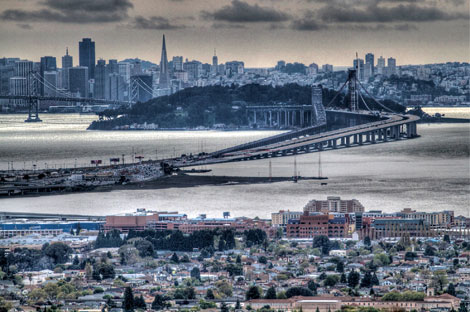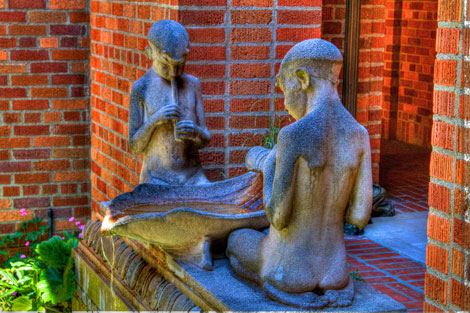Chapter Two
A serial journal of cogent reflections and irreverent insights on the social effects of capitalism and the roots of partisan politics. Pairing prose with HDR photography and “flash points” drawn from current and historical perspectives, the author seeks to recover lost wisdom and courageous action beyond the shouting and noise of today’s headlines.
Chapter Two:
The Calculus of Capitalism
1847 – 1880
What Marx provided was a theoretical blueprint for cracks that lay in the foundation of a new economic edifice called capitalism. And he did it in the way many intuitive but slightly skewed geniuses operate: by masking it in endless obsessive formulations that make one cry uncle and then demanding that no one deviate from its precepts. Clever. But his insights deserve a closer look if we think of them not solely as literal but also as allegorical intuitions about society, the collective.
Marx had an uncanny grasp of how systems evolve and become unstable. His insights are of particular importance today, when even some of our most successful capitalists are questioning capitalism’s further development and many feel the need to insert the word “conscious” as an adjective to describe the kind of capitalism that is sought. In this light, Marx can be seen as a forerunner of Freud, bringing illumination to unconscious capitalism. And to achieve his purpose, he used not personal dreams but the concept of surplus value, a hypothetical construct from which countless threads of connections were made.
Like dreams, surplus value was something obvious. Every business needed profit to survive. But like dreams, what at first seemed inconsequential or even innocent proved to have hidden meaning. Behind the obvious lay a labyrinthine set of relationships with very real consequences.


FLASH POINT
New York City, 1890
“The truth is that pauperism grows in the tenements as naturally as weeds in a garden lot. A moral distemper, like crime, it finds there its most fertile soil. All the surroundings of tenement-house life favors its growth, and where once it has taken root, it is harder to dislodge than the most virulent physical disease.”
~ From How the Other Half Lives, written by Jacob Riis
Marx’s discussion of surplus value and the commentary from others that followed remind me of Talmudic debates about how far a person should be permitted to walk without wearing a skullcap on his head — i.e., endless debate with circular arguments that leave one pondering what, if anything, is being said. One can easily become overwhelmed by the debate and even wonder whether God could be so petty. But behind the debate regarding surplus value lay an insight about an invisible force competitive with any theology: the force of money, power, and influence.
Surplus value was the theorized amount that a worker labored beyond what was needed for his or her minimal subsistence. Each additional hour was a surplus that accrued to someone, the worker or the owner of the labor. At the time of Marx’s writing, factory workers spent on average 80 hours a week working, and much of it was surplus value. The question, of course, was who would benefit from the surplus increment.
Marx’s answer was the owner of the factory, the person who owned the means of production, a relatively small class of people who Marx wrote “created more massive and more colossal productive forces than have all preceding generations together. Subjection of Nature’s forces, machinery … clearing of whole continents for cultivation … what earlier century had even a presentiment that such productive forces slumbered in the lap of social labor?”
Most critically, the calculus of surplus labor provided the ability to project profit after all costs of producing the product or service were removed. And this allowed one to attract investment capital, which created further growth, a never-ending cycle of wealth accumulation.
Consider Facebook today as an example of a company that attracted billions of dollars of investment before selling even one dollar of advertising. Its projection of profit was the attractor. Or Apple, whose Chinese factories and low costs of manufacturing ensured profitability from its ever-expanding network of products. The ability to favorably leverage surplus value fuels confidence among investors that greater and greater wealth is possible. How cool is that?
But Marx saw it all in a dispassionate glare, not the dream of social good fueled by producing ever more products and services but a fierce, never-ending conflict swinging tragically among groups vying for domination. There were flies in the wealth-accumulation ointment.
Marx foresaw competitors and counterforces lurking everywhere. Other capitalists would try to horn in on your product. Workers would demand higher wages. Governmental forces might interfere with your enterprise and would need to be neutralized. A ceaseless battle would ensue among those struggling to achieve wealth and others trying to hold them back. New classes of wealth producers would eventually replace older ones, such as in the case of the commercial classes of 17th-century Europe edging out the privileged bloodlines of the aristocracy or early-19th-century English capitalists overcoming the landed gentry. Wherever one turned, struggle and exploitation would be the rule.
In this new institution of commerce, labor-saving machinery would play a pivotal role as a means to reduce labor costs, but technological innovations would ultimately prove unsuccessful as the source of profit. In Marx’s hypothetical world, the costs of creating and purchasing labor-saving technology would cancel out its ability to generate surplus value even as each competing capitalist would be forced to incorporate the technology into his enterprise or be at a disadvantage.
Labor-saving machinery would result in greater unemployment, initially moderating worker demand for higher wages but influencing a drop of consumption as fewer people could afford new things. The downward spiral would lead to an ever more desperate attempt to find new markets and compete effectively with other capitalists. Larger enterprises would swallow up smaller ones, and, as in a game of musical chairs, consolidation would lead to fewer job opportunities, lessening or even lowering the demand for wages. Finally, surplus value would reappear and the cycle would continue.
Workers would again seek self-interest through higher wages, new kinds of labor-saving technology would be conceived, larger enterprises would swallow up smaller ones, profits would swell until limits were reached, often due to corruption, and economic collapse would follow. In Marx’s dark vision, the consistent element was that only human labor could provide surplus value, but with ruinous consequences. This is why Marx, never shy of the provocative metaphor, compared the capitalist class to the undead, because “vampire-like, [it] only lives by sucking living labor.”
Beyond the hypothetical cycles of boom and bust, Marx somehow also intuited a fundamental psychological conflict between the structure for making goods and the superstructure that owned and profited from the enterprise. The first required high levels of integration, cooperation, and concerns for interdependence. Multiple processes had to be aligned to produce the final product. A certain measure of fairness and motivation needed to be stimulated among those working together. What every organizational consultant today knows is necessary for successful enterprise was somehow foreseen by Marx, working out his obsessive formulas in isolation.
But Marx saw something else, a psychological quality that most of us do not want to see. It was this: The majority of owners would exhibit mirror-opposite tendencies. They would be highly individualistic, idiosyncratic, seeking autonomy more than anything else, wary of anyone with too intrusive a social conscience. They would be, for the large part, disdainful of the collective, particularly those elements of society that were not successful. Words like personal responsibility and accountability would take on almost a sacred tone when addressed to subordinates. What would primarily concern the ownership class was their privilege, solidifying their capital accumulation, passing it on to their children, and expanding their freedom to do exactly as they desired. Forces on behalf of social planning, with its requirement for a modicum of social cooperation, would thrust themselves against the psychology of individual privilege, and they would grind away at each other like tectonic plates just below the surface.
Main Sources
The Worldly Philosophers, by Robert L. Heilbroner
The Communist Manifesto, by Karl Marx and Friedrich Engels
Grand Pursuit, by Sylvia Nasar
Next Week: Ghosts of Past, Present, and Yet to Come
Would not progress and economic growth lift all ships? Rather than economic cycles leading to greater economic division and social fragmentation, would there not transpire higher levels of educational attainment, greater entrepreneurial opportunities, and increased social mobility? In time, isn’t it logical to think that an investment class would value knowledge and motivation for its workers, leading to better working conditions, not worse? How could it be otherwise? With time, progress would surely come…



